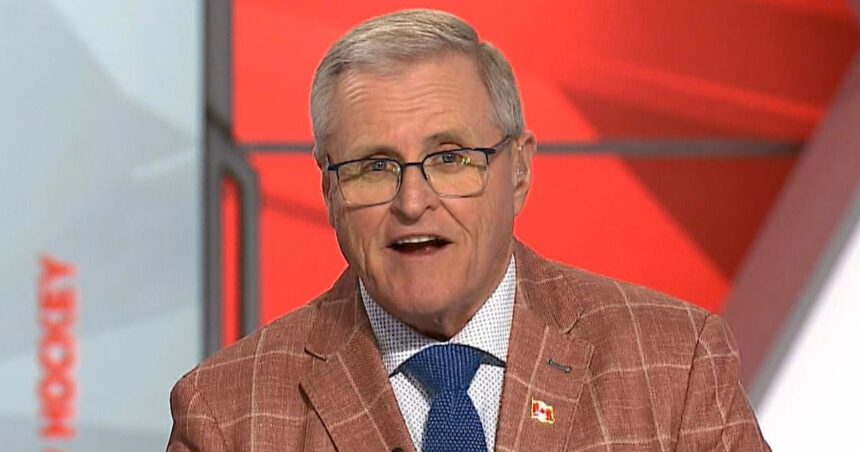In a move that’s sending ripples through Toronto’s sports media landscape, legendary hockey insider Bob McKenzie announced today that he’ll hang up his microphone after an illustrious 38-year career at TSN. For nearly four decades, McKenzie has been the trusted voice delivering hockey news to countless Torontonians and Canadians alike.
Walking through the bustling streets of downtown Toronto this morning, I couldn’t help but notice the conversations at every coffee shop and streetcar stop centered on McKenzie’s retirement. His impact on how we consume hockey news in this city has been nothing short of transformative.
“Bob wasn’t just a reporter, he was an institution,” says Mark Thompson, longtime producer at TSN. “He pioneered what it means to be a hockey insider in the digital age while maintaining old-school journalistic integrity that’s increasingly rare today.”
McKenzie’s career spans the evolution of sports media itself. Beginning in the pre-internet era when print journalism and television were king, he successfully navigated the shift to social media and digital platforms while maintaining his reputation for accuracy and balanced reporting.
The statistics behind McKenzie’s career are staggering. According to TSN figures, he’s broken thousands of NHL trades, signings, and draft selections over his tenure. During NHL trade deadlines and draft days, viewership consistently spiked by 30-45% when McKenzie was on air, per network data.
His retirement marks the end of an era that saw hockey coverage transform from niche reporting to mainstream entertainment. McKenzie played a pivotal role in making complex salary cap discussions, prospect evaluations, and trade deliberations accessible to casual fans throughout the Greater Toronto Area.
Maple Leafs president Brendan Shanahan offered high praise. “Bob’s reporting was always fair, accurate, and thoughtful. In a business where being first often trumps being right, he somehow managed to be both consistently.”
I remember my first encounter with McKenzie at a 2011 press conference at Scotiabank Arena (then Air Canada Centre). While younger reporters jostled for position, McKenzie calmly stood back, notebook in hand. When he finally asked his question, the room fell silent. That command of respect from players, coaches, and fellow journalists alike defined his career.
Beyond the headlines, McKenzie’s influence extends to Toronto’s youth hockey programs. His detailed draft coverage helped countless local families understand the development path for young players. Scarborough Minor Hockey Association president Denise Williams notes, “Bob made the complex world of player development understandable for parents trying to support their kids’ dreams.”
The timing of McKenzie’s departure coincides with significant changes in sports media consumption. According to research from the Canadian Media Fund, traditional sports broadcasting has seen a 22% decline in viewership among under-35 demographics, while digital platform engagement continues to rise.
What made McKenzie exceptional wasn’t just his sources or breaking news—it was his ability to explain hockey’s intricacies to viewers of all knowledge levels. Whether discussing Toronto-specific development projects or league-wide trends, he maintained that perfect balance between expert analysis and accessible communication.
“I’m not retiring completely,” McKenzie clarified in his announcement. “I’ll still appear occasionally during TSN’s draft coverage, but my daily duties are coming to an end.”
For Toronto sports fans who grew up with McKenzie’s insights, this marks the end of a reliable presence during hockey’s biggest moments. His measured delivery during chaotic trade deadlines and thoughtful player evaluations during draft coverage became seasonal traditions for many Toronto households.
As media fragmentation continues and short-form content dominates, McKenzie’s legacy reminds us of the value of patient, thorough journalism. In an industry increasingly driven by hot takes and artificial urgency, his career stands as testament to the enduring power of credibility.
Walking past Real Sports Bar near Scotiabank Arena this afternoon, I noticed several tables of lunch-hour patrons raising glasses in McKenzie’s honor. It’s a fitting tribute to someone who became the trusted companion of countless Toronto hockey conversations.
As we bid farewell to this Toronto media fixture, his departure creates an opportunity to reflect on how sports journalism has evolved and where it might head next. One thing remains certain—whoever steps into McKenzie’s role faces the challenge of filling the largest shoes in Canadian hockey media.
Toronto sports media won’t be the same without him.







